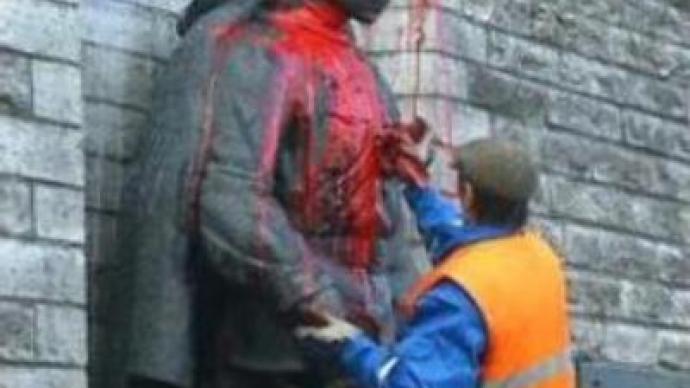Estonian president vetoes war memorial removal bill

Estonia's President, Toomas Hendrik Ilves, has vetoed a controversial bill that would have a Soviet war memorial “Bronze Soldier” removed from Tallinn. It will now be passed back to Parliament for further amendment.
Last week the Estonian Parliament passed a bill obliging the government to remove the Soviet war memorial within a month. But according to Estonian law, the bill would only come into force if approved by the President.The President's veto clearly shows his official position. Toomas Hendrik Ilves has already voiced his objection to the bill saying some sections are unconstitutional.The “Bronze Soldier” has become a symbol of division in Estonian society. Most of the country's ethnic Russians feel the government is trying to destroy the legacy of Soviet rule. But for many Estonians it represents a regime which, they say, occupied the country for over half a century.U.S. Congressman Tom Lantos, a Holocaust survivor, has said he is firmly against the statue's removal. He was saved from a concentration camp by the Red Army during the war and says it's important their memory is cherished.“Admiration for the heroism and sacrifice of the Russian army in liberating Europe from the hold of Hitler is unbounded and I believe that it is appropriate to commemorate the sacrifice of those armies with monuments in all of the countries that were liberated from Hitler,” Mr Lantos says.But not everyone shares this view.The Estonian government says the statue has become a rally point for extremists and they want to move the monument along with the soldiers' remains, thought to be under it, to a more suitable place.“There is no country which wants to have a spot which is destabilising relations between different groups of its population, so probably if we would remove it to an appropriate place where it's not so attractive for extremists then I think we will live in peace,” thinks Raivo Jarvi, Estonian MP.The bill has brought strong indignation from Russia, with Foreign Minister Sergey Lavrov calling it an act of blasphemy which would deal a blow to Russia-Estonia relations.
You can share this story on social media:












